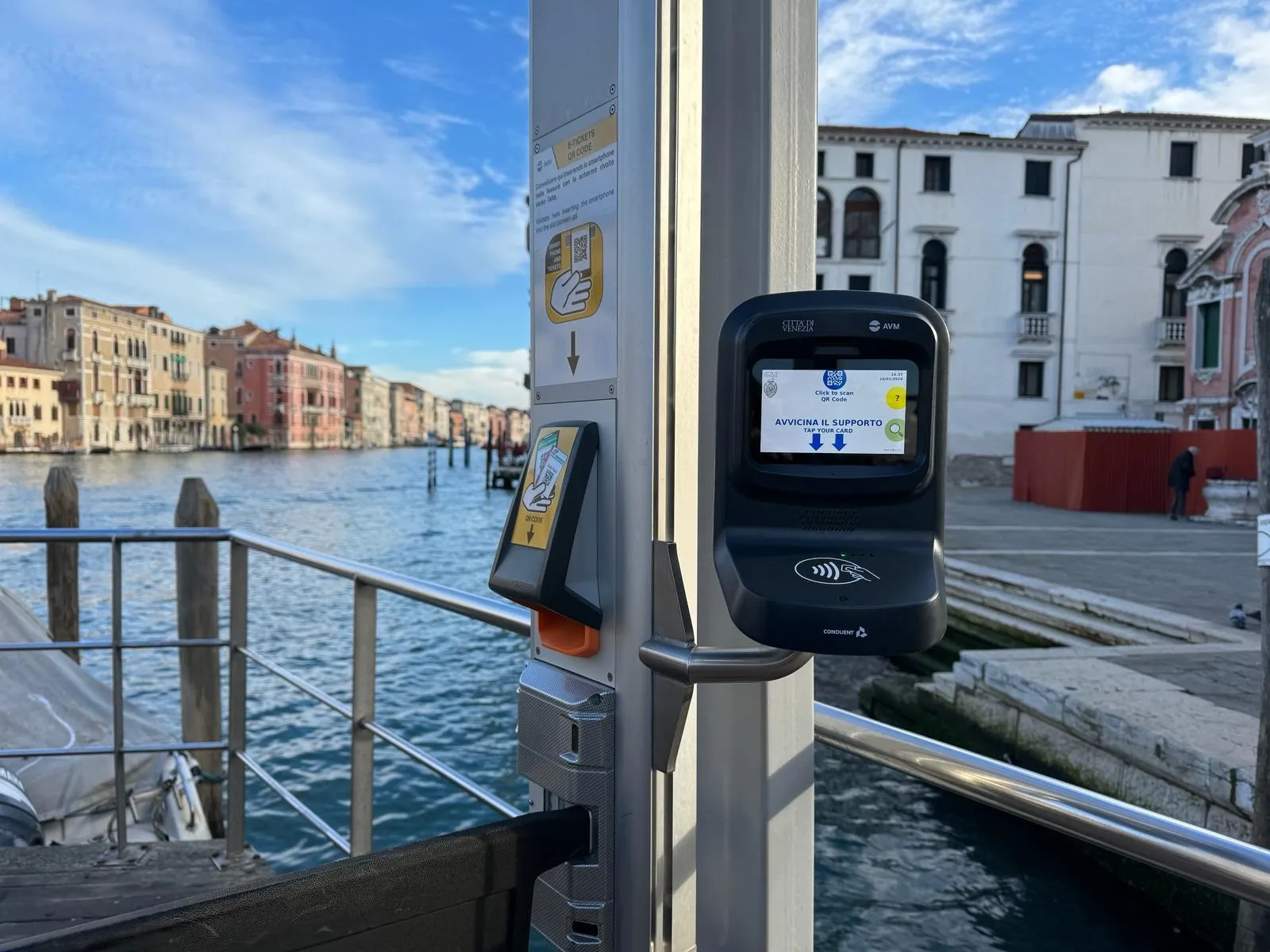
Public transport riders in the international tourist hotspot of Venice can now pay for fares using credit and debit cards, as well as NFC-enabled smartphones and watches.
Conduent Transportation, along with Elavon and Visa, has launched a contactless open payment system on the Italian city's transportation network, which is managed by Azienda Veneziana della Mobilità (AVM) and comprises buses, trams and - famously - waterbuses.
The new EMV (Europay, Mastercard and Visa) payment system offers easier access to AVM’s local public transport service in the metropolitan area of Venice, as well as integrated mobility services in the urban area.
Around 180 million passengers travel on the Venice public transport network every year.
Conduent has supplied over 2,200 validators, which enable fare payment on Venice’s fleet of 149 vessels (water buses, speedboats, motorboats and ferries), more than 150 wharfs, 540 buses, 20 trams and two people movers.
The validators will also take Venezia Unica cards and electronic tickets, and the new system allows best fare pricing, which means users are automatically charged the lowest available price for the journeys taken each day.
“It’s been a few busy months of work that has made EMV technology a reality on the whole transport network managed by AVM,” said Giovanni Seno, general manager of Gruppo AVM.
“We have progressively improved the customer experience of the new validators – also listening to feedback received from passengers – and we are looking forward to the summer season with an innovation that has enormous potential, both in terms of market penetration and in terms of impact on our organisation.”
Jean-Charles Zaia, Conduent president, transit solutions, says the company is "honoured" to be part of AVM’s modernisation programme.
The company has implemented similar systems in the Veneto region, in Belluno and Verona, and has also deployed contactless open payment systems in cities in the Lombardy and Liguria regions.






